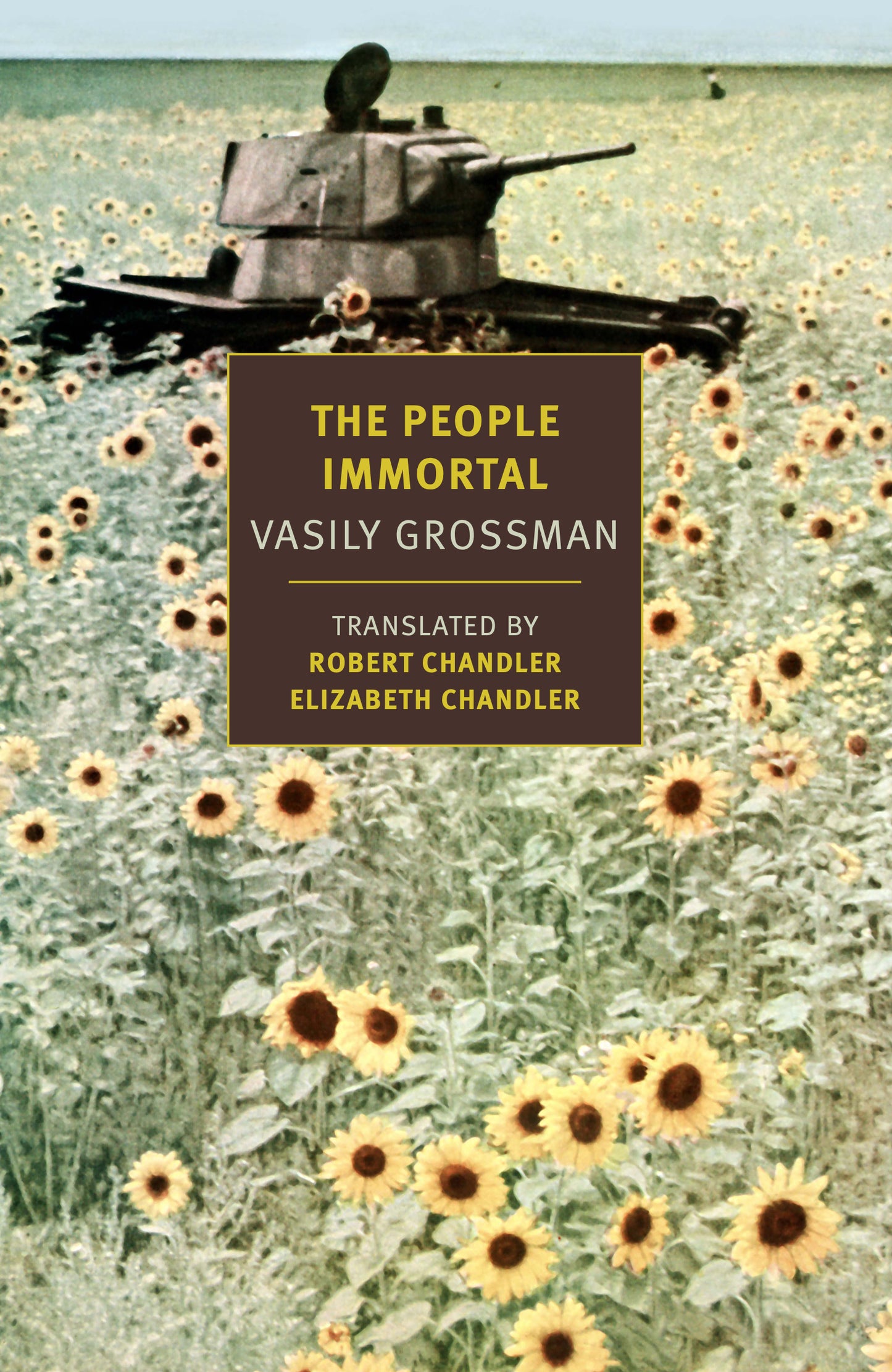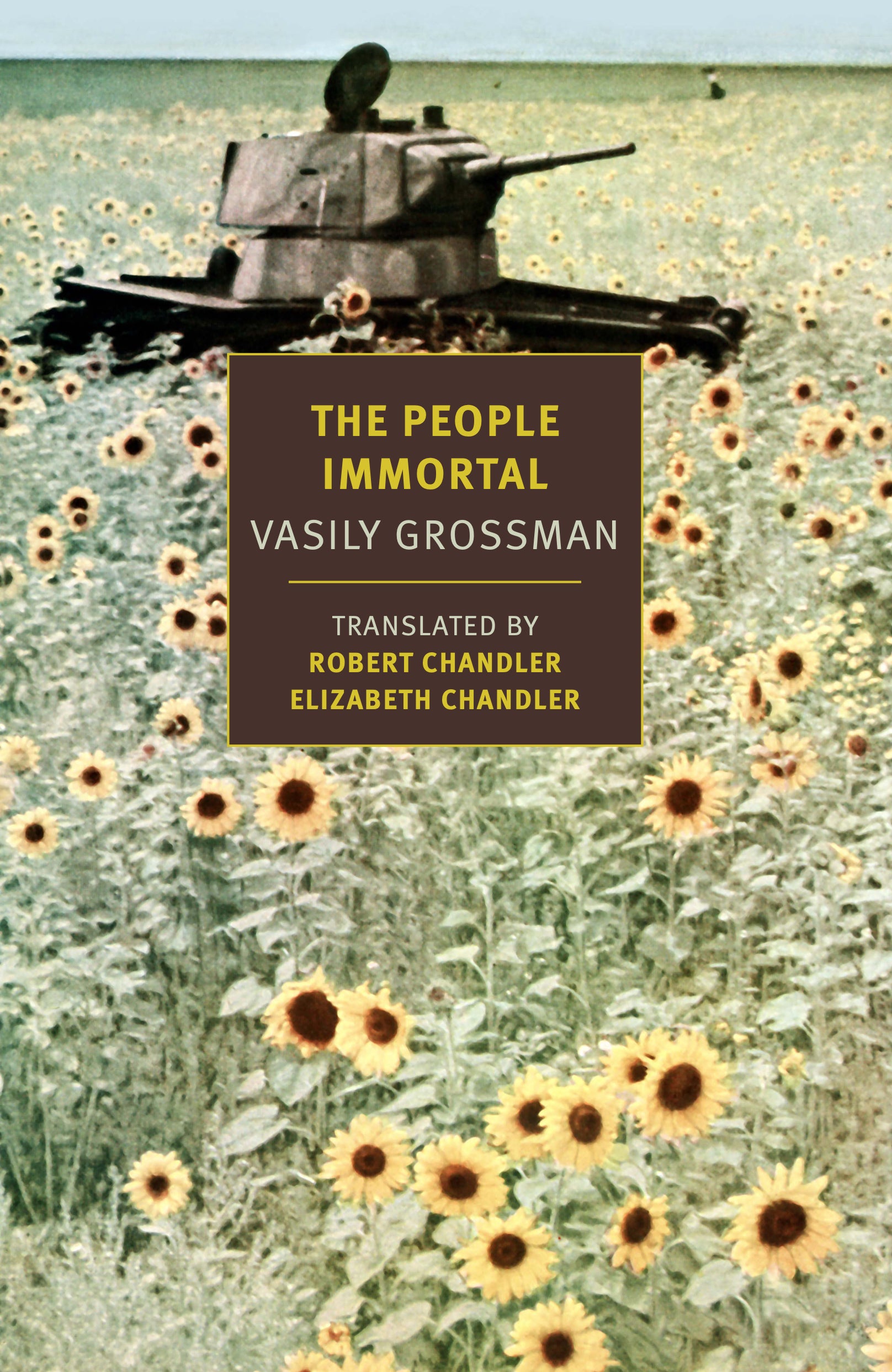In the hands of a lesser writer, Grossman’s tales of heroism, of the solidarity between regular soldiers and political commissars, and his romanticized descriptions of Soviet life under Stalin, would be sentimental, except Grossman is self-aware to a fault. He understands that, like the infantrymen and tankers he describes, he’s a soldier, too, only stories are his weapon.
—Elliot Ackerman, The Atlantic
In the summer and autumn of 1941 Grossman worked as a frontline correspondent for the military newspaper Red Star, narrowly eluding capture. What is so remarkable about the notes he took and the novel that gives them fuller expression is his capacity in the early hour of bitter retreat to grasp that this was ‘a war like no other’.
—Jochen Hellbeck, TLS
The writing is tensile and evocative. A scene of besieged soldiers singing in the forest has stayed with me; I can still hear their voices.
—Cary Holladay, Hudson Review
A work not only of considerable literary significance, but also an important historical document. . . . As a new world war is brewing in Ukraine, and the vilest nationalism, xenophobia and historical lies are being promoted by the ruling classes everywhere, works like this will help reconnect the generations that have to wage the revolutionary battles of today with the socialist traditions of 1917.
—Clara Weiss, World Socialist Web Site
This is Grossman’s genius. In a few lines he can evoke a whole life. . .The book is barely 200 pages but this new edition is full of fascinating footnotes and biographical and historical information. . . .it reminds us of the horrors of war and why Grossman was one of the greatest chroniclers of the Second World War in all its inhumanity.
—David Herman, The Jewish Chronicle
Superbly translated by Robert and Elizabeth Chandler. . . . Its greatest strength lies in its authenticity, with several characters modelled on real-life figures and much of the description drawn from personal testimony. Grossman combines a journalist’s eye with a novelist’s empathy, his portrayal of men under fire matching that of Erich Remarque and Stephen Crane.
—Michael Arditti, The Spectator (UK)
For the second world war, or Great Patriotic War as it is known in Russia, the most renowned writer is Vasily Grossman. . . . a superb translation by Robert and Elizabeth Chandler. . . admirers of Grossman will enjoy The People Immortal and benefit greatly from the introduction, afterword, appendices and notes provided by Robert Chandler and [Julia] Volohova.
—Tony Barber, Financial Times
The People Immortal is a remarkable novel that illuminates the terrible realities of Barbarossa and the banal horror of warfare with incomparable understanding and insight. As you would expect from Robert and Elizabeth Chandler, the translation is superb.
—Jonathan Dimbleby
Grossman's great and enduring asset as a novelist is that - paradoxically - he didn't have to rely on his imagination. He was there . . . It gives his writing unrivalled authority . . . [A] significant, valuable addition to Grossman's small but powerful body of work.
—William Boyd, Sunday Times
Grossman's future greatness is written in its pages . . . at the heart of his writing lies a tireless humanity and empathy.
—Julian Evans, Telegraph
[An] insightful novel. . . The text, which Grossman wrote shortly after his own visit to the front as a war correspondent, hums with fine details. . . a worthy look into Russian wartime psychology.
—Publishers Weekly






